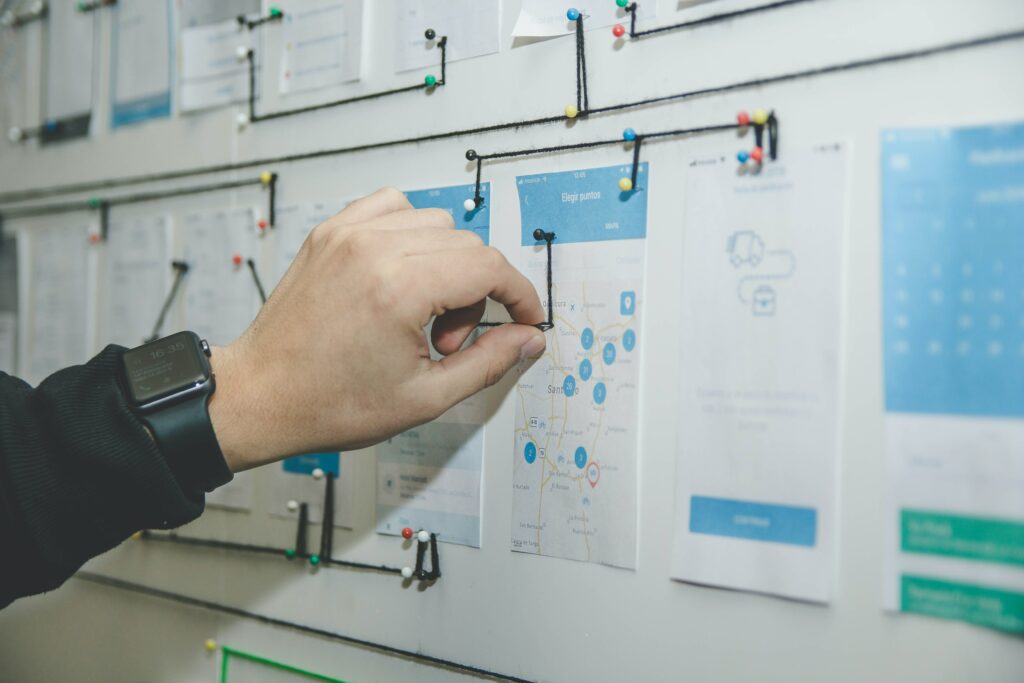What is the role of co-creation and digital participation in public sector organisations? One of the aims of the H2020 inGOV project is to investigate how co-creation can lead to sustainable outcomes such as Integrated Public Services (IPS) but also how it can be a sustainable organisational process in Public Sector Organisations (PSOs).
The interest in digital co-creation as a governance tool has grown steadily over the last few years (Mu, Wang, & Song, 2022) . E-Government benchmarks (e.g. UN (2020) ), measure the importance of accessibility, usage and user satisfaction, to what extent services are perceived as effective and match user expectations. According to such benchmarks, PSOs should also meet social demands, in line with the European Commission (2021) , who points out that policies should empower people and businesses. Information and communication technologies (ICTs) have created opportunities to digitally transform public sector organizations (PSOs) and the relationships between the stakeholders (Mergel, Edelmann, & Haug, 2019) , and the European Commission points out that ICTs should be used to support the involvement of citizens and other stakeholders in the development and delivery of public services. This involvement should not only benefit a range of stakeholders but should also help develop sustainable co- creation processes within PSOs and lead to sustainable outcomes.
Whilst sustainability reports in PSOs can cover e.g., financial aspects, they can also be used for management, strategic planning, organizational change and compliance with standards and stakeholders’ requirements. To achieve this compliance, PSOs need to know who the stakeholders are, identify their needs and demands. The literature on co-creation activities in the public sector tends to be optimistic (Voorberg, Bekkers, & Tummers, 2015) , although there are certain limitations and barriers (Torfing, Sørensen, & Røiseland, 2019) , there is not always a clear distinction between co-creation processes and outcomes (Edelmann, Steen, & Van Dijck, 2023) , and, given its reliance on user participation, the role of ethics has not played a particularly prominent role. So how can co-creation to contribute to the development of sustainable digital processes in organizations and achieve sustainable outcomes?
To answer this question, during the course of the H2020 inGOV project, 4 workshops were organised to bring together experts from academia, PSOs, and public administrations involved in the 4 European inGOV pilots and discuss the meaning of sustainable co-creation in the public sector, sustainable co-creation processes, sustainable co-created outcomes, as well as the legal and ethical aspects of co-creation. Results show that the concept of co-creation itself needs to be used carefully and must differentiate between the co-creation process based on involving stakeholders to collect new information and knowledge and the co-created outcomes such as public services and IPS.
Kitchener, Ashworth, Horton, and Elliott (2023) , understand co-creation as a collaborative problem-solving process including formulation, delivery, and evaluation that enhances public value, supports participation among a wide range of governmental and non-government actors and recognizes the potential for innovation in public policy processes. Sustainable co-creation processes are based on organizational change, technical support arrangements, new organizational processes and developing expertise within the organization. At the same time, the relationship between PSOs and stakeholders must be developed and sustained, and all stakeholders willing to engage in continuous learning. Sustainable processes must be understood in terms of the organisation, its legal and technical framework, and the human resources. These are aspects that are also considered by Osborne, Radnor, Vidal, and Kinder (2014) . In particular, the results gained suggest that in order to be sustainable, the PSO must take ownership of sustainability, by ensuring that sustainability reflects the organisational values, and has the necessary procedures, human and economic resources to carry it out in the long-term. This includes a legal framework that is both compatible and complementary to the national context and European frameworks. The technical dimension of sustainable tools needs to consider the ICT tools to be used; the human dimension requires actors who have the skills and the opportunity to contribute to sustainable processes. Whilst Torfing et al. (2019) , argue that co-creation offers a viable path for the public sector, although there is a need to be aware of the risks and benefits of co-creation as well as the drivers and barriers that may stimulate or hamper the expansion of co-creation. Whilst they focus on aspects such as institutional design, public leadership, systemic change, we argue that, as co-creation relies on human participation and the collection of data in order to develop new policies and services, ethics is an additional important dimension that has until now been neglected in research and practice.
The sustainable outcomes can be new or improved public services or new policies but can also be broader such as the development of sustainable digital change, or public administration reform. Based on the workshop discussions, for sustainable artefacts or outcomes 3 aspects (themes) need to be considered in particular: the dimensions of the artefact, the technical and the organisational context. Outcomes, in order to be sustainable, must be part of a “preservation strategy”. The outcome or artefact must be “open” (in a technical and legal sense such as open data or open software), be re-usable and thus adaptable to different contexts, thus strengthening the idea of an outcome developed for the long-term. Sustainable outcomes in the public sector must be embedded in a governance structure that has the relevant values, processes and ways of working, as well as a technical framework and ICT tools that lead to sustainable outcomes.
In the workshops, the participants refer to stakeholder input and opinions as being of particular importance in sustainable co-creation, but whilst the sustainability of co-creation processes and the co-created outcomes is often implied, we aimed to uncover best practices and outcomes associated with sustainable co-creation in the public sector. It is not always possible to disentangle sustainable co-creation processes and co-created outcomes, and implementing best practices will impact the achievement and impact of co-created outcomes.
This blog represents a summary of work presented by the author and H2020 inGOV partners at the following:
“Sustainable digital co-creation in the public sector: Establishing practices and measuring outcomes” Conference “Digitalization for sustainability transformations”, University of Augsburg, Germany 20-22 September 2023 Digitalization for sustainability transformations: Critical perspectives, lessons learned, and future prospects (uni-augsburg.de)
“Ethics challenges in public service co-creation” at “EGOV2023 – IFIP EGOV-CeDEM-EPART 2023”, Corvinus University of Budapest, Hungary 4-7 September 2023 EGOV-CeDEM-ePart 2023 | DGS (dgsociety.org)
“Application of Text Analytics in Public Service Co-Creation: Literature Review and Research Framework” at 24th Annual International Conference on Digital Government Research (dg.o 2023), Gdańsk, Poland, 11-14 July 2023 dgo.2023 | DGS (dgsociety.org)
References:
– Edelmann, N., Steen, T., & Van Dijck, C. (2023). Sustainability and Co-creation in Public Sector Organisations: Practices, Outcomes and Lessons Learned. Paper presented at the Sustainability and Co-creation in Public Sector Organisations: Practices, Outcomes and Lessons Learned, Nijmegen, The Netherlands.
– European Commission. (2021). 2030 Digital Compass: the European way for the Digital Decade. Brussels Retrieved from https://ec.europa.eu/info/sites/default/files/communication-digital-compass-2030_en.pdf
– Kitchener, M., Ashworth, R., Horton, D., & Elliott, E. (2023). Co-created public value: The strategic management of collaborative problem-solving. Public Policy and Administration, 09520767231162407.
– Mergel, I., Edelmann, N., & Haug, N. (2019). Defining digital transformation: Results from expert interviews. Government Information Quarterly.
– Mu, R., Wang, Y., & Song, H. (2022). How does technological system design affect value creation? A systematic literature review of digital co-production. Global Public Policy and Governance, 2(4),400-426.
– Osborne, S. P., Radnor, Z., Vidal, I., & Kinder, T. (2014). A sustainable business model for public service organizations? In (Vol. 16, pp. 165-172): Taylor & Francis.
– Torfing, J., Sørensen, E., & Røiseland, A. (2019). Transforming the public sector into an arena for co-creation: Barriers, drivers, benefits, and ways forward. Administration & Society, 51(5), 795-825.
– UN. (2020). United Nations E-Governement Survey 2020. Retrieved from Deaprtment of Economic and Social Affairs: https://desapublications.un.org/file/781/download
– Voorberg, W. H., Bekkers, V. J., & Tummers, L. G. (2015). A systematic review of co-creation and co-production: Embarking on the social innovation journey. Public Management Review, 17(9), 1333-1357.
Show similar posts
Leveraging the inGOV Holistic Framework for EIRA compliant architecture design
inGOV standardization efforts
The main objective of the inGOV project is to contribute to the evolution of core European Public Service (PS)
IPS Stakeholder engagement
Stakeholder engagement is key for an e-government initiative to be fully successful and effective.


